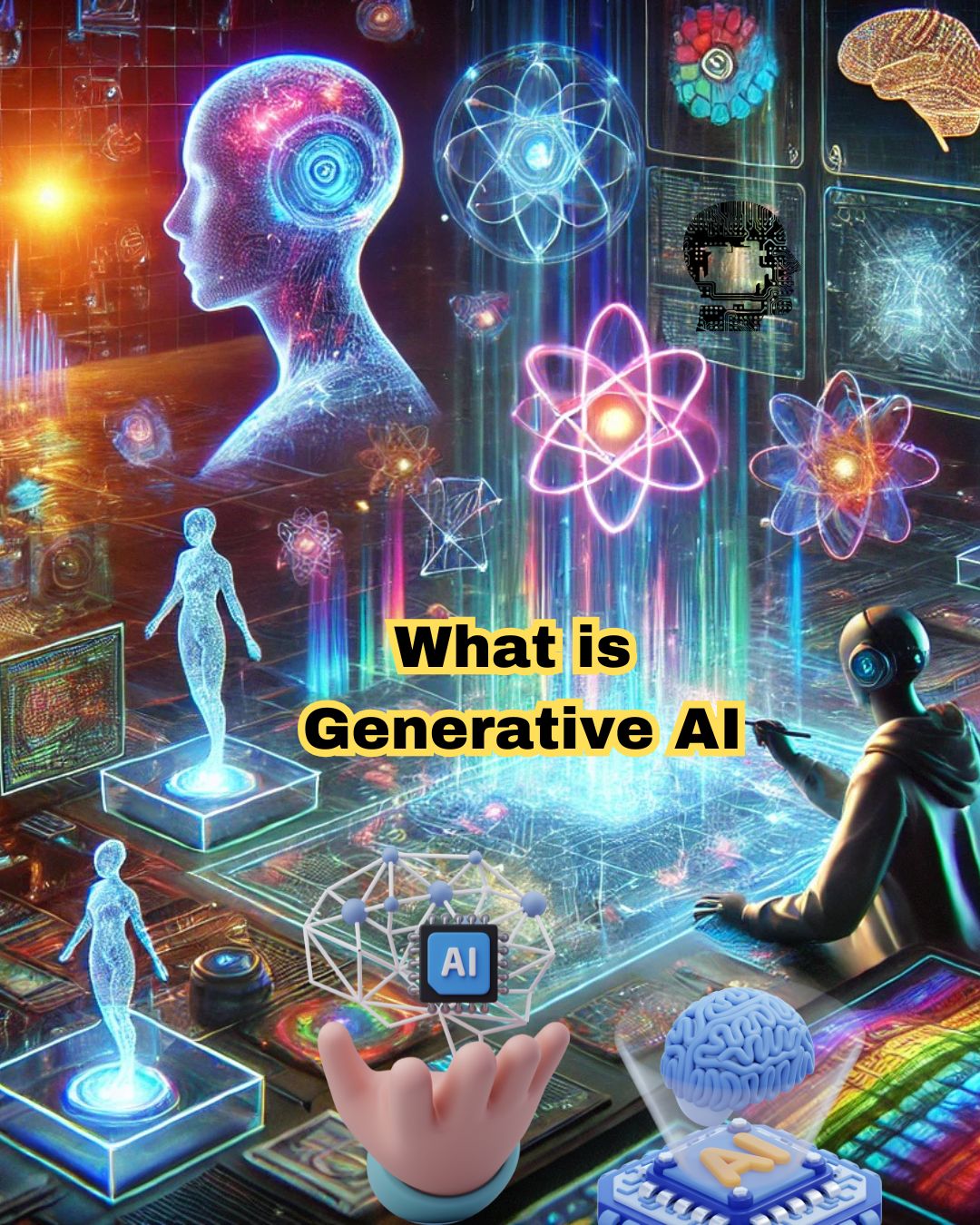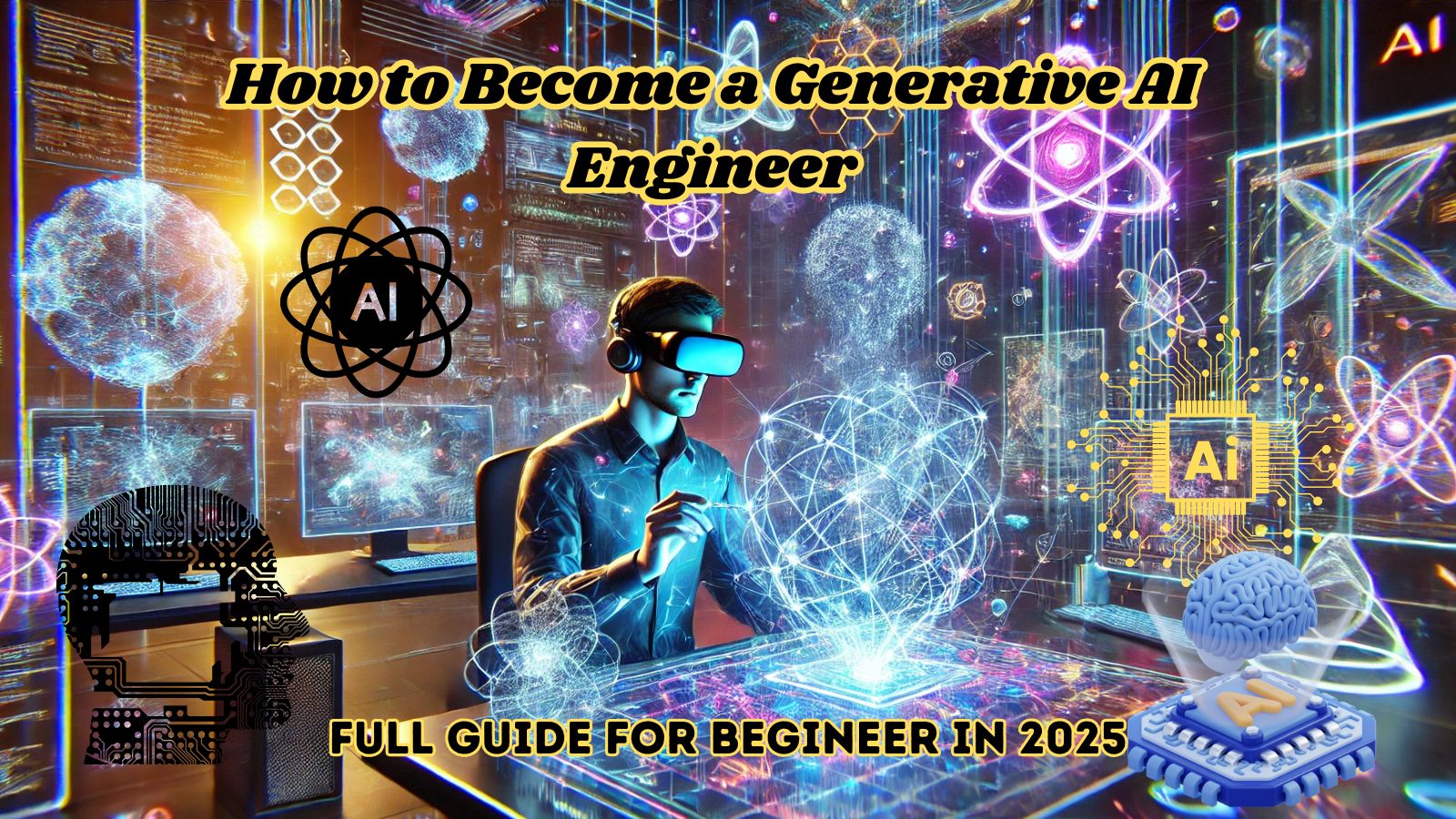What is meant by generative AI engineer?
Become a Generative AI Engineer: A Full Overview (2025). A generative AI engineer designs, develops, and deploys artificial intelligence systems that create new content—such as text, images, music, or code—using models like GPT-4, DALL-E, GANs, and VAEs. Unlike traditional AI responsibilities focused on forecasts or categorizations, generative AI engineers create systems capable of producing original, human-like results.

Main Responsibilities of a Generative AI Engineer
- Model Development: Build and fine-tune generative models for tasks like text synthesis, image generation, or code automation.
- Data Preprocessing: Curate and clean large datasets to train models effectively.
- Improvement: Increase model efficiency, reduce bias, and confirm ethical approval.
- Teamwork: Work with cross-functional teams (e.g., product managers, data scientists) to integrate generative AI into applications.
- Research: Stay updated on cutting-edge techniques (e.g., diffusion models, multimodal AI) and implement them.
- Deployment: Scale models using cloud platforms (AWS, GCP) and MLOps tools.
Join the Telegram Channel: Join Now!
Top 8 Popular Cybersecurity Jobs for 2025 and Future:- Click Here!
How do you become a Generative AI Engineer in 2025?
- Educational Foundation
- Bachelor’s graduate: Computer Science, Mathematics, or Data Science.
- Important Courses: Linear algebra, calculus, probability, and statistics.
- Advanced Degrees (Optional): Master’s/PhD in AI or ML for research roles.
- Master Core AI/ML Skills
- Learn Python and frameworks like TensorFlow, PyTorch, and Hugging Face.
- Knowledge about deep learning architectures.
- Specialize in Generative AI
- Study generative models: GANs, VAEs, autoregressive models (e.g., GPT), and diffusion models.
- Explore tools like LangChain for LLM applications or Stable Diffusion for image generation.
- Hands-On Experience
- Projects: Create a portfolio with demos like text-to-image generators, chatbots, or synthetic data pipelines.
- Kaggle Competitions: Participate in challenges involving generative tasks.
- Internships: Join AI labs or tech companies (e.g., OpenAI, NVIDIA).
- Stay Updated
- Follow research papers on arXiv, attend conferences (NeurIPS, ICML), and join communities (GitHub, Reddit’s r/MachineLearning).
- Anticipate trends: multimodal AI (combining text, image, audio) and ethical AI governance.
- Networking & Certifications
- Earn certifications: Google’s Generative AI Course, AWS ML Specialty.
- Network via LinkedIn, AI meetups, or hackathons.
Key Requirements and Skills
- Technical Skills:
- Expertise in Python, PyTorch, and TensorFlow.
- Experience with cloud platforms.
- Knowledge of NLP (tokenization, embeddings) and CV (image synthesis).
- Soft Skills:
- Creativity to design novel solutions.
- Ethical awareness to mitigate bias/misuse.
- Bonus Skills:
- MLOps (Docker, Kubernetes).
- APIs for model deployment (FastAPI, Flask).
Career Path Progression
- Entry-Level: Junior ML Engineer, Data Scientist.
- Mid-Level: Generative AI Engineer (focus on industry-specific applications).
- Senior-Level: Lead AI Researcher, AI Architect, or Head of AI.
- Industries: tech, healthcare (drug discovery), gaming (NPC design), marketing (content generation).
Conclusion
Generative AI is revolutionizing industries by automating creativity. To become a generative AI engineer by 2025, focus on mastering the base of ML, specialize in generative models, build on-hand projects, and stay agile in a fast-growing sector. Ethical responsibility and continuous learning will be key to long-term success.
FAQs
- Do I need a PhD to work in generative AI?
- No, but advanced degrees help for research roles. Strong portfolios can substitute.
- What’s the average salary?
- 120K–200K+ (varies by location and experience).
- How is this different from a Data Scientist?
- Data Scientists analyze data; Generative AI Engineers build systems that create new data.
- Biggest challenges?
- Ensuring ethical use, managing computational costs, and avoiding biased outputs.
- Top industries hiring?
- Tech, entertainment, healthcare, finance, and automotive (e.g., self-driving simulations).


4 thoughts on “Become a Generative AI Engineer: A Full Overview (2025)”